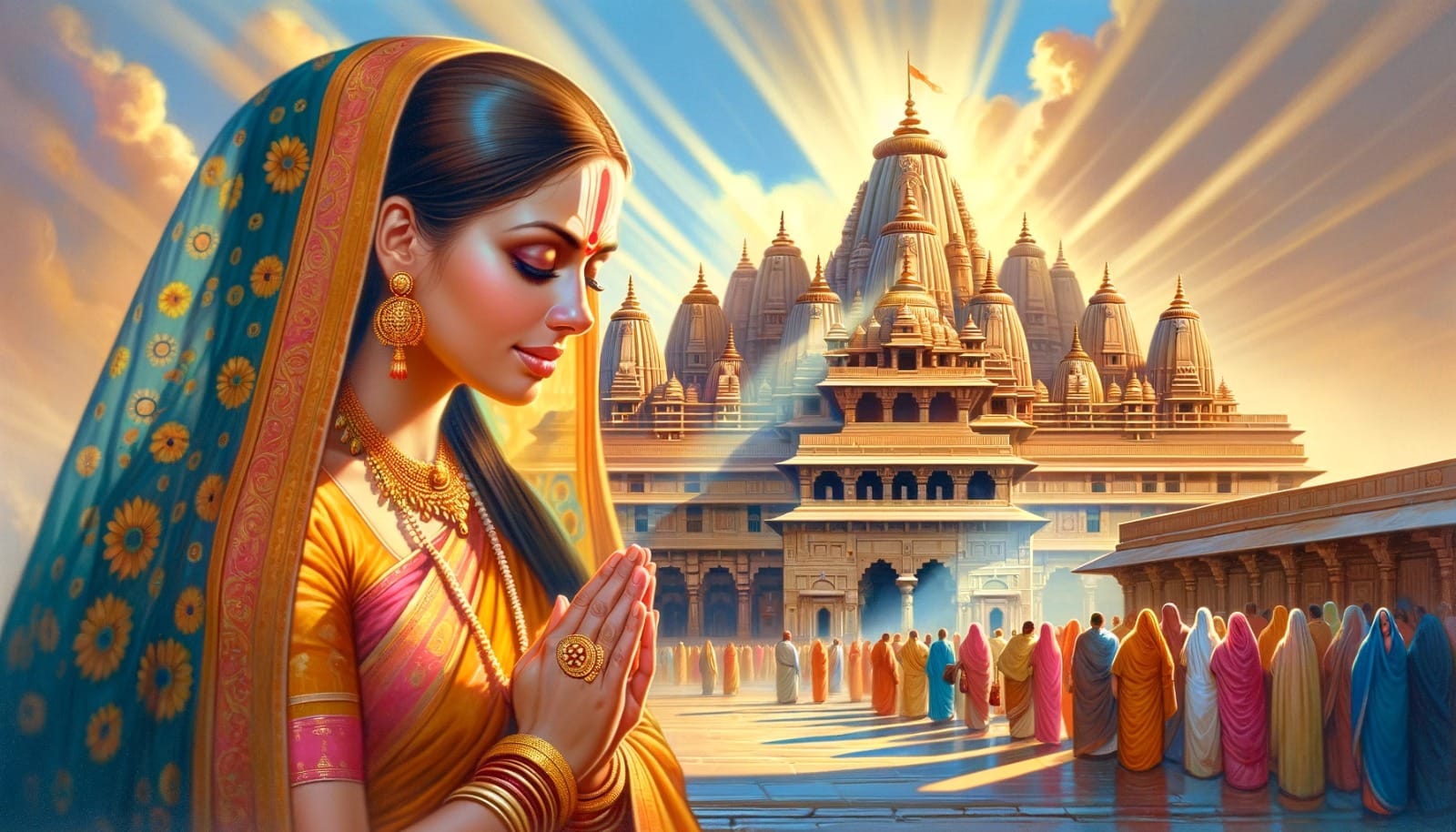Introduction:
Namaste, dear readers. In today's blog, we delve into the profound spiritual insights and cultural significance of the Ram Mandir, a topic of immense importance to our Indian civilization and the world at large. As Swami Mukundananda Ji eloquently explains, the construction of the Ram Mandir is not merely an architectural feat but a pivotal step in solidifying our spiritual roots and cultural identity. Let us explore these enlightening perspectives, understanding the deeper essence of this monumental undertaking.
The Timeliness and Divine Intent of the Ram Mandir
The debate surrounding the timing of the Ram Mandir's construction brings to light a significant spiritual principle: the supremacy of pure intention (Bhakti) over material considerations. Citing the example of King Dasharath and Guru Vashishta from the Ramayana, Swami Ji elucidates that when actions are driven by a sincere desire to please the Supreme Lord, they transcend mundane calculations of time (Muhurat). This principle is vividly demonstrated in the context of Ram Mandir's construction, where the collective desire of the Indian people to see Lord Ram in his sacred abode transcends political timelines and worldly concerns.
3 Reasons WHY We Need Ram Mandir Now
Ram Mandir: A Pillar of Indian Civilization and Global Spirituality
The Ram Mandir stands as a beacon of spiritual and cultural heritage for India and the world. Swami Ji highlights how Indian civilization, revered as the Jagat Guru (World Teacher), is deeply rooted in its spiritual epics like the Ramayana and Mahabharata. These sacred texts have shaped our arts, music, dance, and architecture, fostering a civilization steeped in spirituality. As India strides forward in economic and technological development, the Ram Mandir symbolizes a harmonious blend of progress and cultural integrity. It's a testament to India's commitment to a development model that honors its spiritual heritage, setting an example for holistic growth.
The Multi-Dimensional Importance of the Ram Mandir in Modern Times
In addressing concerns about the funds used for the Ram Mandir, Swami Ji underscores the necessity of spiritual institutions alongside material infrastructure like hospitals. He stresses that health is not just physical but encompasses emotional, social, and spiritual well-being. The spiritual nourishment provided by temples like the Ram Mandir plays a crucial role in addressing the inner health of individuals and society. In a world grappling with mental and emotional challenges, places of spiritual solace like the Ram Mandir serve a vital function, uplifting and purifying the hearts and minds of humanity.
The Unifying Power of Bhakti and the Future of Indian Civilization
As we reflect upon the significance of the Ram Mandir, it becomes clear that it is more than a structure; it's a symbol of unifying bhakti (devotion) and a guiding light for India's role as a spiritual leader in the world. The temple's construction, fueled by the collective devotion of people rather than government funds, epitomizes the power of faith in action. As India emerges as a major global power, the Ram Mandir stands as a reminder of the country's spiritual legacy, ensuring that India's growth remains rooted in its rich spiritual traditions.
Conclusion:
In conclusion, the Ram Mandir is not just a monument but a living testament to India's spiritual depth and cultural richness. It embodies the collective aspiration of a nation to honor its divine heritage while progressing in the modern world. As Swami Mukundananda Ji reminds us, true development encompasses not just economic growth but the flourishing of our spiritual and cultural values. May the Ram Mandir continue to inspire and guide us on this path of holistic development. Namaste.
FAQs:
Q1. Why is the Ram Mandir significant to Indian civilization?
A1. The Ram Mandir is significant as it embodies India's spiritual heritage, deeply rooted in its sacred epics like the Ramayana. It symbolizes the cultural and spiritual identity of India, influencing its arts, literature, and societal values.
Q2. How does the Ram Mandir contribute to the well-being of society?
A2. The Ram Mandir contributes to societal well-being by providing a space for spiritual growth and emotional healing. It addresses not just physical health but also the emotional, social, and spiritual well-being of individuals and communities.
Q3. What does the construction of the Ram Mandir signify for India's future?
A3. The construction of the Ram Mandir signifies a harmonious blend of India's spiritual heritage with its modern development. It symbolizes India's commitment to a development model that respects and nurtures its cultural and spiritual roots.
- #RamMandirInsights
- #SpiritualIndia
- #SwamiMukundanandaWisdom
- #CulturalHeritageIndia
- #BhaktiAndDevelopment


